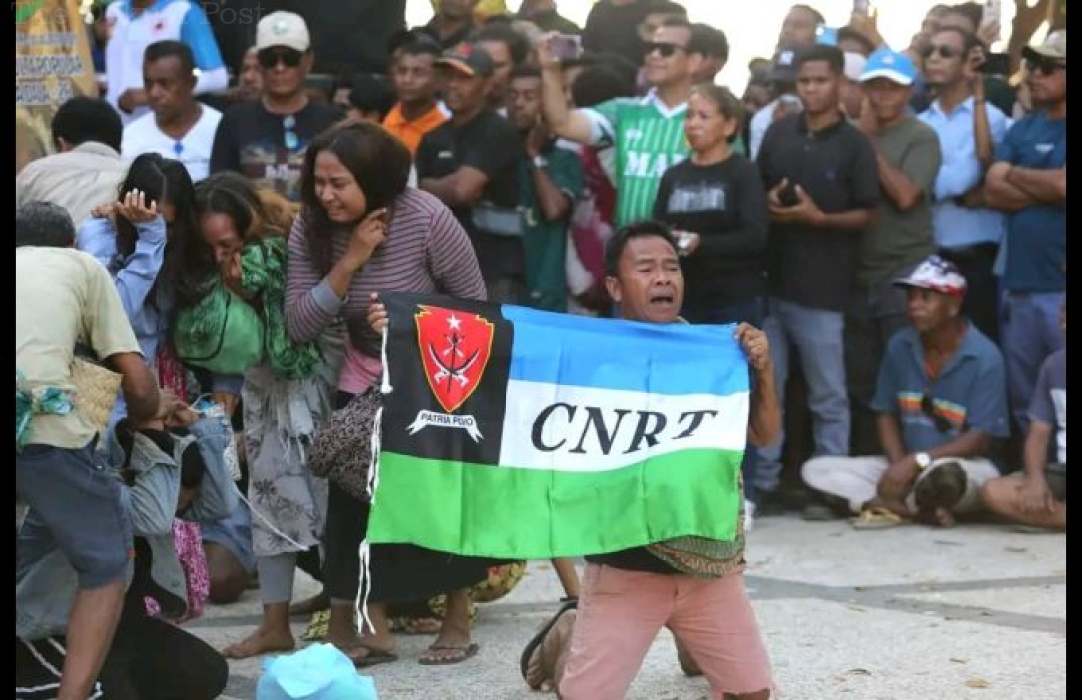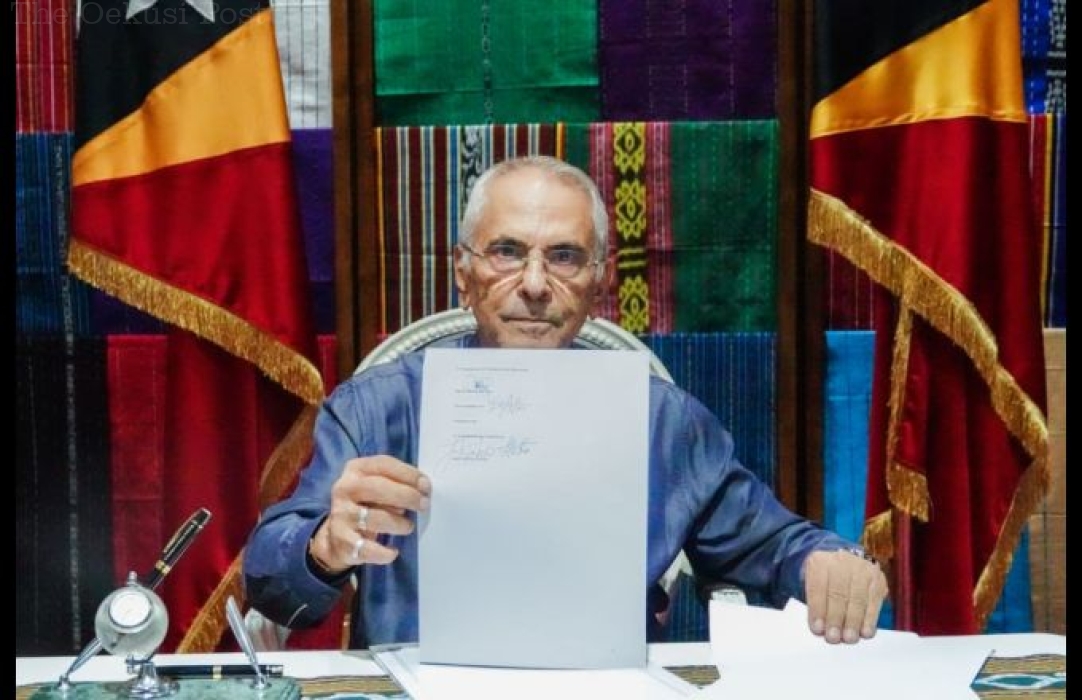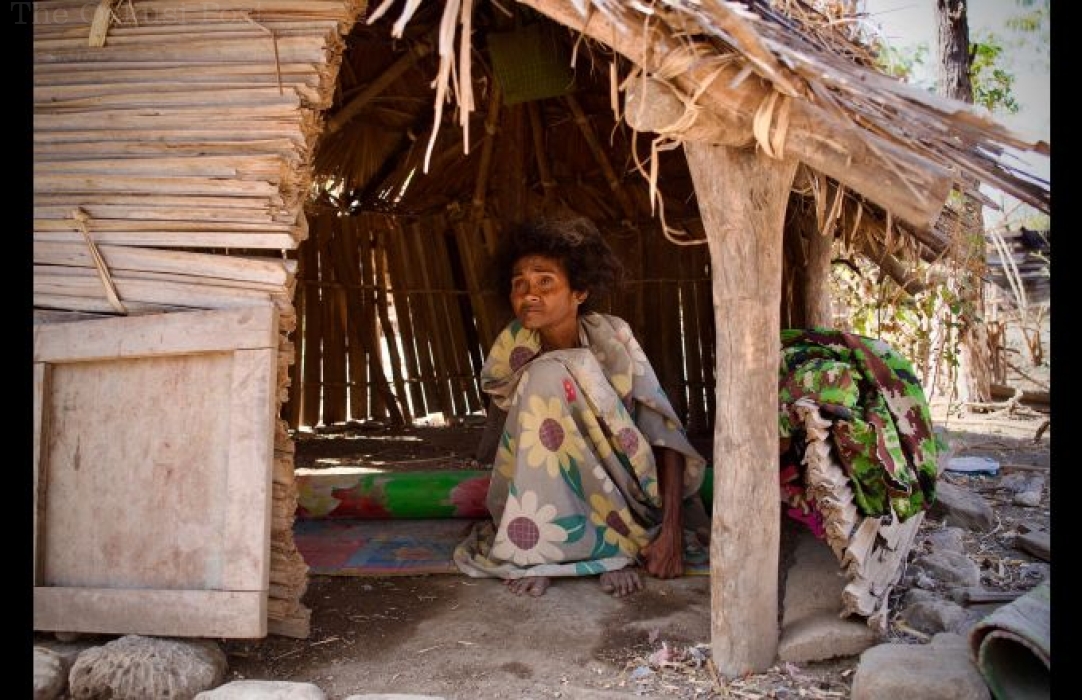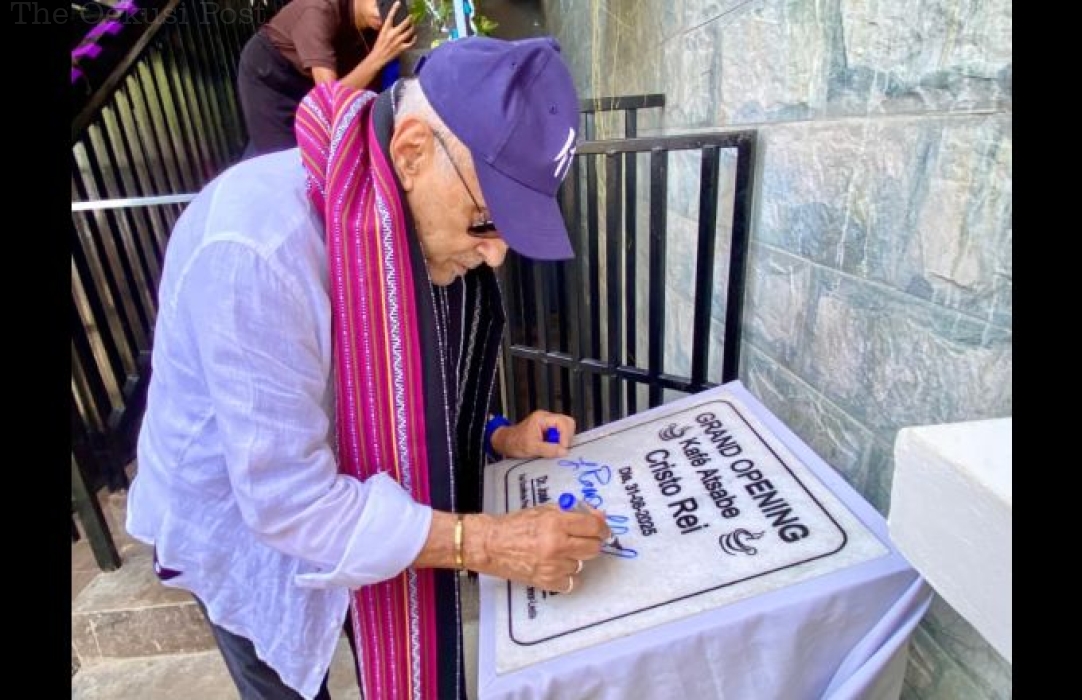DILI (TOP) - The President of the Republic, J. Ramos-Horta, participated this Saturday in the ceremony commemorating the 26th anniversary of the Popular Consultation Day, held at the Lecidere Garden in Dili, attended by the community, national authorities, and the international community.
In his speech, the Head of State recalled that the popular consultation, held 26 years ago, was only possible thanks to the political change that occurred in Indonesia between 1997 and 1998, which led to the resignation of President Soeharto and the rise to power of Vice-President B.J. Habibie.
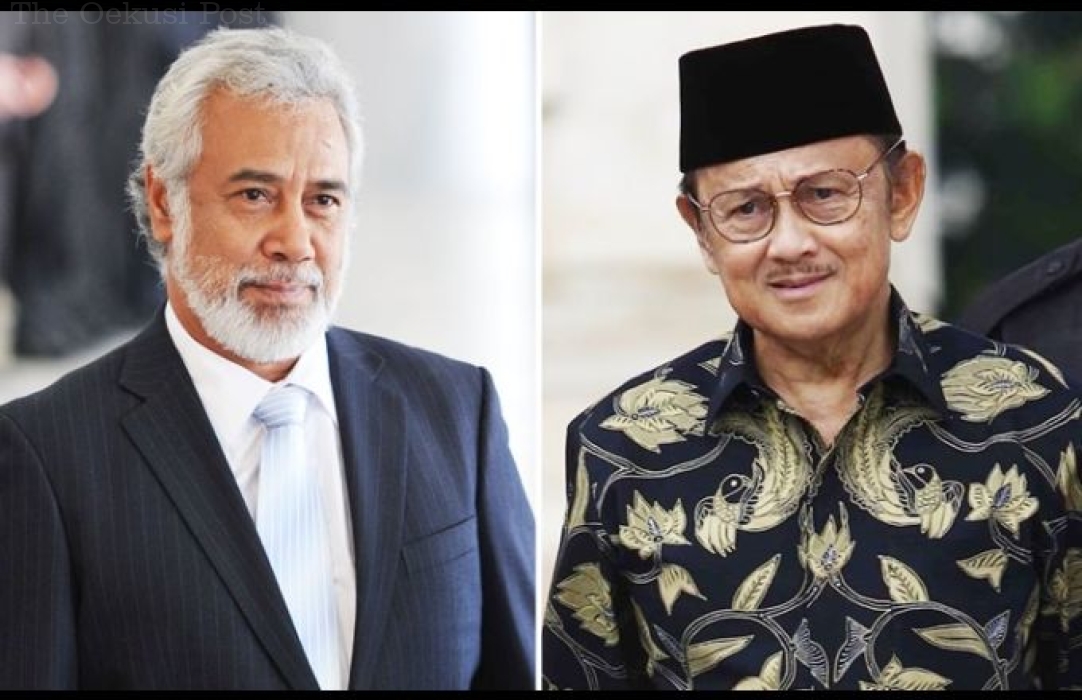
According to Ramos-Horta, Habibie immediately assumed the commitment and initiative to resolve the issue of Timor-Leste before the end of 1998.
Subsequently, Indonesia began negotiations with Portugal and the United Nations (UN), which resulted in the decision to hold a popular consultation that would allow the Timorese people to choose between remaining a province of Indonesia or achieving their independence.
President Ramos-Horta also recalled that in January 1999, various acts of violence began to emerge between pro-Indonesia groups and independence supporters in an attempt to compromise the process. However, Xanana Gusmão, the current Prime Minister, firmly insisted that the popular consultation or referendum should be held without delay.
“I deeply admire the leadership of Xanana Gusmão as a political leader, as I closely followed the strategic way he handled this process, as if he were playing chess,” stated the Head of State.
Ramos-Horta also stressed the importance of recognizing the decisive role of the Indonesian military and the late B.J. Habibie in making the consultation possible, also highlighting the last-minute international mobilization that allowed the referendum to become a reality. Finally, the President called for a national reflection on the courage of the Timorese people, who, despite threats and pressure, went to the polls in massive numbers on the day of the consultation to decide the future of the Nation.
It was Mr Habibie who, as Indonesia's first president after the fall of Suharto in 1998, agreed to grant East Timor a plebiscite on independence.
At the time, Mr Gusmao — a former resistance leader with East Timor's Falintil forces — had been incarcerated in Cipinang prison for seven years, since his capture by Indonesian forces in 1992.
President Habibie's decision to allow a referendum in 1999 helped pave the way for Mr Gusmao's eventual freedom later that year.
It is understood Mr Gusmao visited Mr Habibie at Jakarta's Gatot Subroto army hospital, sometime in the past few weeks, where the former Indonesian president was dying of heart failure.






